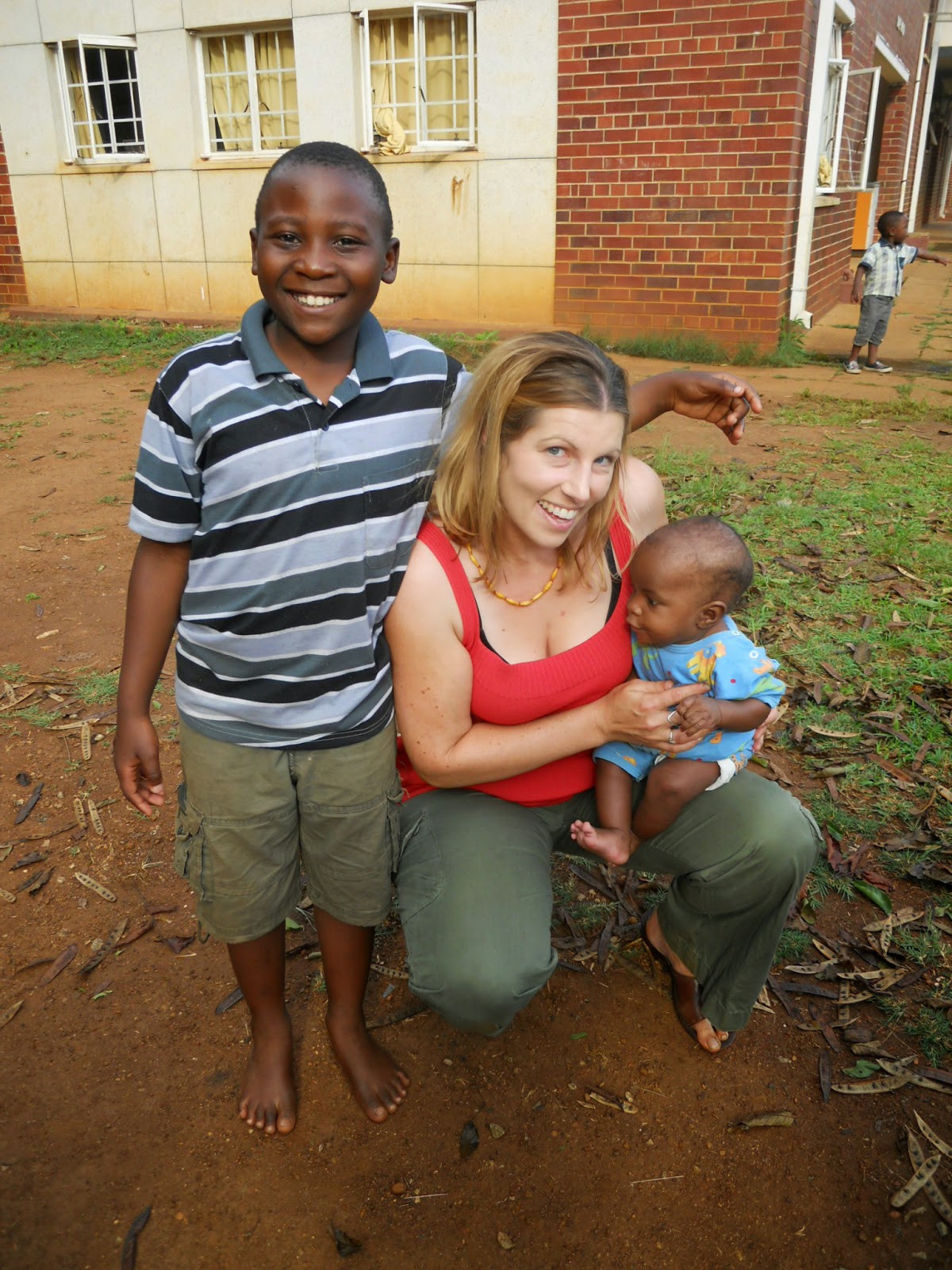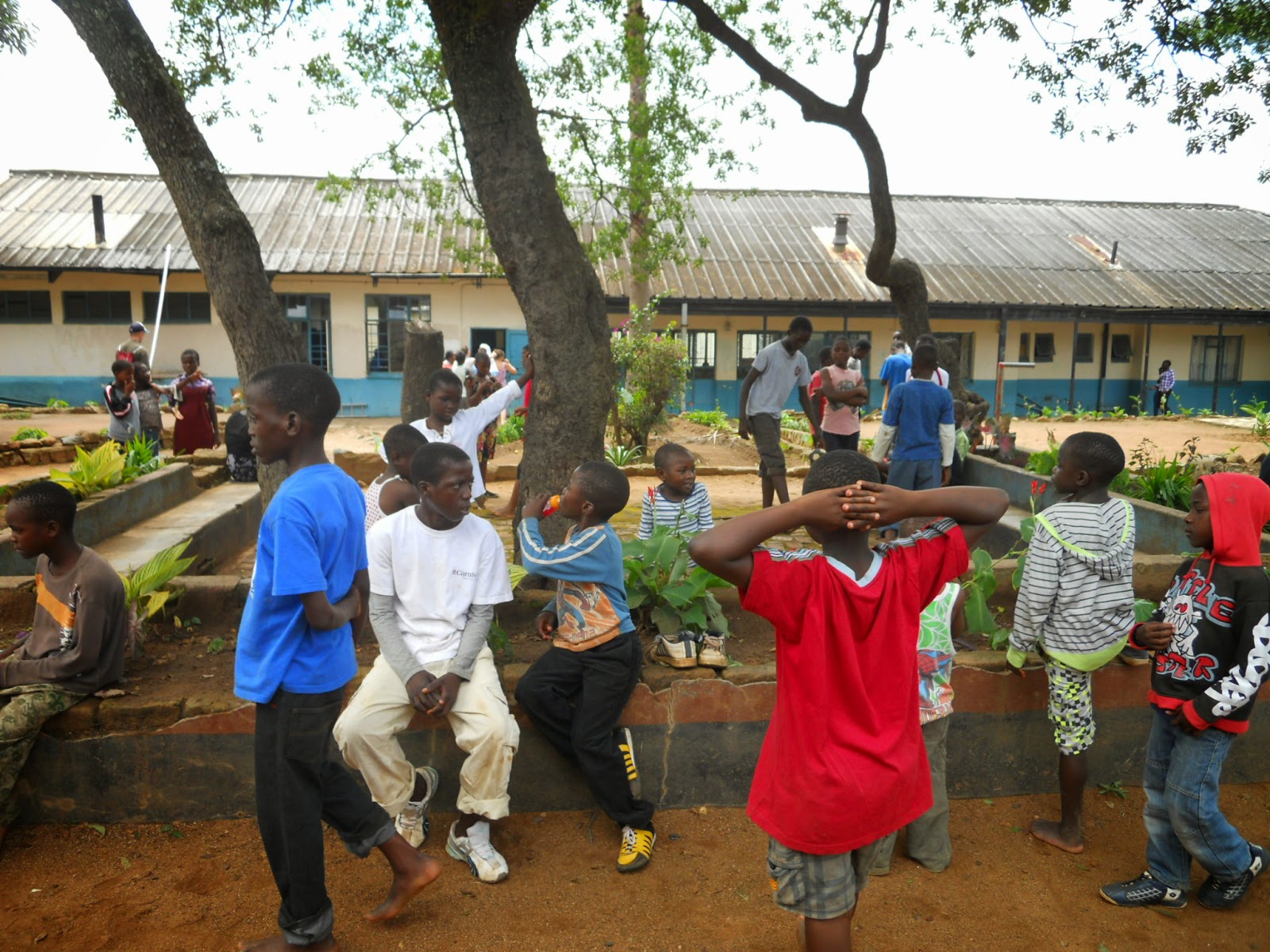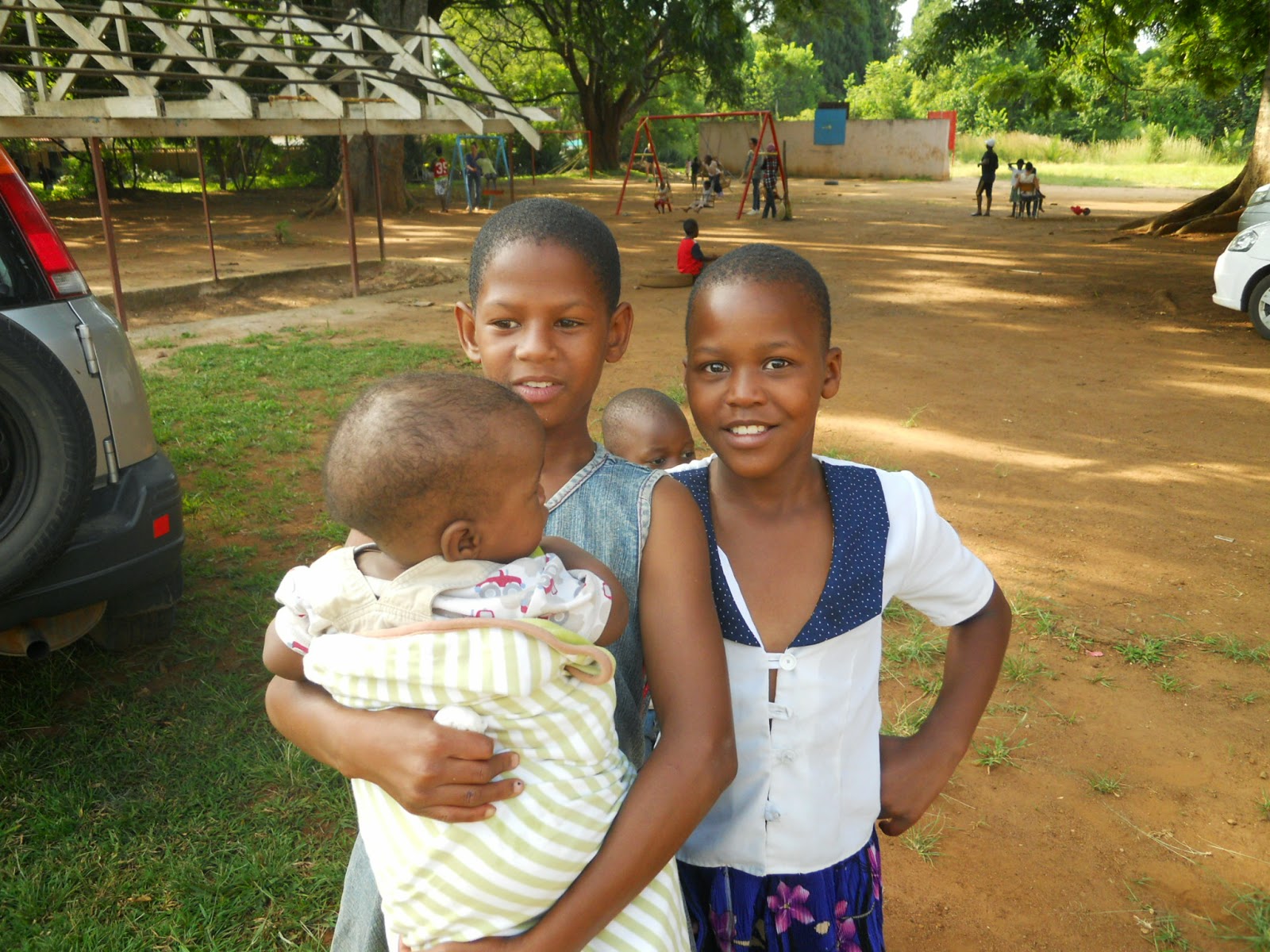I will admit it. I got along much better with the city kids. But this is ironic, as I’ve spent most of my
time in rural orphanages. Let me explain
the differences –the stark differences-- between rural orphanages and city
orphanages in Zimbabwe…
The Rural Orphanage: It was a few days in advance that I learned
we could stop by my favorite rural orphanage an hour outside of Harare during a
harvesting trip some students at my husband’s school were taking to the nearby village
of Juru. I debated whether or not to
contact a few people who had previously donated to our orphanage work. It was so last minute, and I felt terrible
for asking for anything after their previous generosity, but something in me
said to try in the event I could scrape together something small. But I have to confess that it
was really about hating to arrive empty handed more than thinking I could make
any difference. Scraping together a little over $200 worth of donations
of noodles, rice, and cans of veggies and peanut butter ended up being
surprisingly easy, but the impact was where the real surprise came.
When we arrived, I had the high school students carry the
food into the kitchen. It was 1:00 pm,
the usual time lunch would have been served. I had expected to see everyone in
the dining hall, but instead found all of the children sitting outside. There
was no evidence that lunch had taken place; no dishes, smells, etc. As I went
to put vegetables from my garden into the fridge and some sweets from a donor
into the freezer, I realized something that immediately set a huge lump in my
throat.
There was nothing.
I opened cabinets, one after another. I opened the closet, then
looked behind the building. I tore through everything I could. There was nothing. No food. Anywhere.
I checked with the cook, standing outside. There was nothing. No food. Anywhere.
An ignorant local I spoke to later, who had lived in Harare her whole life, listened to me tell the story later and said, "Well that's ridiculous. Why didn't they just call someone?"
"And who would they call?" I had asked innocently, while wanting to rip her head off. I suppose I should give them my phone number. Oh, but Sister D. doesn't have a cell phone, so I'd probably have to give her that, too. And if I did, she'd only have a few days of electricity a month to charge her phone. But then I'd probably need to provide her with phone minutes, too, because how would she pay for them?Oh, but they don't have cell reception out there anyway. The local had stammered and then changed the subject.
As I told our donors later, you just never know when a gesture
will hit someone at exactly the right moment.
There was no way those rural children, surrounded by farmland of all
things, would have eaten dinner without the generosity of random far-away people
willing to pitch in small pieces at the last second. We rode home from the orphanage knowing
exactly what those kids were eating for dinner because it was what we had
carried into the kitchen that afternoon.
My prayer is that someday when our donors find themselves in such a
clutch position, they will feel the same deliverance I saw on the cook Angela’s
face that afternoon.
The economic challenges of the
rural African orphanage are much more significant in general than that of a
city orphanage. I have come to the
conclusion that although the orphanages in Harare are very very needy, too, the
real starvational poverty happens in places like Juru. There is a smaller surrounding population to
donate time and provisions and in places where everyone is trying to survive,
organizations like the Juru orphanage have few people to ask for help. In
laymen’s terms, the physical and social isolation of rural orphanages is often
great. Health care is harder to access.
Fewer nearby businesses and companies mean there is less of an economic
base and upper class to support the workings of the organization. Rural orphanages are often needier and lack
even basic necessities, like water and electricity, that city orphanages enjoy. Rural
orphanages often grow their own food in gardens near the orphanage, but there
are almost always too many mouths to feed for these crops to provide
sustainability.
 The City Orphanage
The City Orphanage: City
orphanages sometimes receive more challenging children, as they are often the receivers
of street kids, those that have been affected by drugs or the drug industry
while trying to survive, or those who have been involved in prostitution in
some way.
Our personal relationships with
most of the kids we have worked with come from children in city areas or
children that have been relocated to rural orphanages after being in the city
for a time. This is because these are the
kids who know English. The farther one goes into the rural areas, the
harder it can be for people like me to communicate without a good knowledge of Shona or Ndebele.
Though city orphanages also often face financial struggles, surrounded by a larger population
base, city orphanages get corporate sponsorship and donation drop-offs
often. The children at one of my
favorite homes in the city used to scramble and shriek madly whenever I brought
bananas or vitamins to them and I was often puzzled by how thin they were
despite watching these donations happen.
Not only were a number of the donations going out the back to be sold by
“mothers” working at the orphanage for their own personal gain, but the
donations that were getting to the children’s lips were often not in a
nutritional form.
While sitting down to read books
with a group of little ones one day, I asked them what special treat I should
bring for them the next time I came to visit. “Uggh,” one of them said. “Please,
just don’t bring us any more cake.
Everyone brings us sweets.”
“Yes!” said others. “We want
fruits or vegetables. Please!”
I was floored. But how fun it has been to introduce these little ones to their very first
pineapple and blueberries and strawberries since.
The transition for children from
city orphanages into adulthood is a hard one compared to that of the rural
orphan. In the rural areas, children
live like the largest populations of Shona and Ndebele live: growing their
food, dealing with electrical and water shortages, washing clothing by hand,
and living on sadza and other carbohydrate staples. At the city orphanages children are often
raised with televisions blaring in the background, donations of already prepared
foods and sweets, and generators. Though
the city lifestyle sounds better, studies are beginning to show that unfortunately
these children are less prepared for the lifestyle of poverty they most often
find once leaving the orphanage system.
 |
| Above the boys at a rural orphanage learn how to clean a chicken coop. |
 |
| Above some children at a city orphanage play on their (albeit dilapidated) playground equipment. |
 |
| Above is the freezer from the rural orphanage I mentioned. Empty except for empty bread bags (their only form of tupperware) and old soda bottles of ice, used to keep the freezer cold during severe ZESA outages. |
 |
| Above two of the older boys fill pots with water from a spigot above the stove to be taken to the garden. The borehole was broken and the orphanage was relying on water piped from a neighboring school. But the water does not work when ZESA is out, or when the school shuts it off to use it for themselves, so daily children help carry pots to the vegetable garden. On the counter sit some of the donations from our donors. |



















































